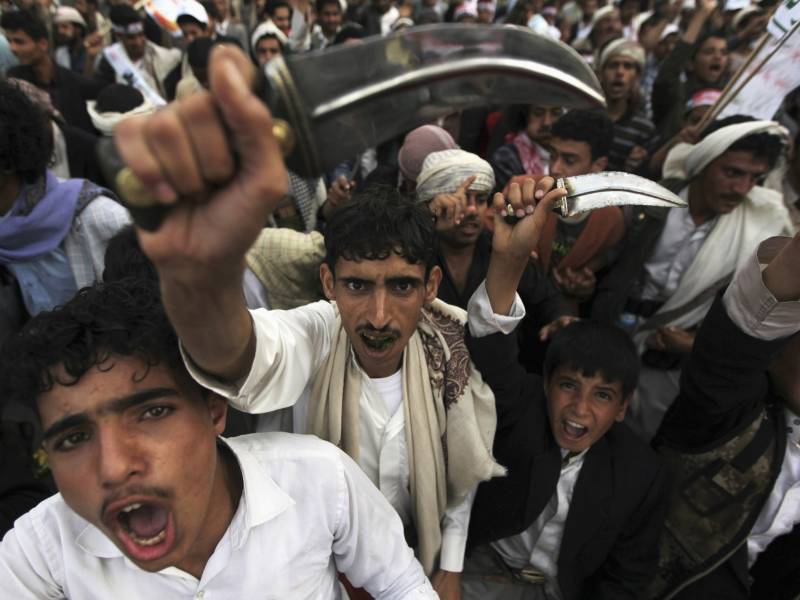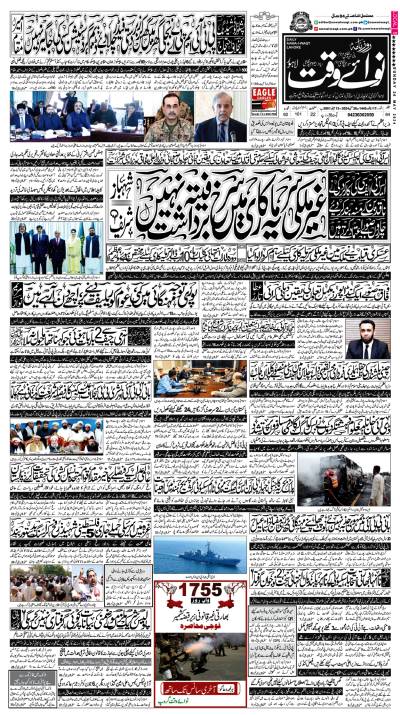With the reaching of an agreement between Iran and the P5+1 countries, the stage has been set for the lifting of sanctions from Iran, in exchange for not so much as a stopping of the Iranian achievement of a nuclear weapon, as of a delay. However, the deal must be seen within the context of the Yemen crisis, in which Iran is involved through its support for the Houthis fighting against Yemeni President Abdur Rabbu Mansour Hadi, as it is another arena for conflict with Saudi Arabia. It would be too much of a coincidence for the deal to have come at a time when Yemen represents another Iranian intervention in the Middle East, following not just its support to the Syrian regime, which is Alawite, but also to Lebanons Hezbollah and the Iraqi regime, which are both of the same Ithna Ashariya subsect of the Shias as the Iranian regime.
At one level, the deal is not permanent. It merely puts off for 10 years Iranian enrichment and enrichment research and development plans. In other words, the P5+1 negotiators merely put off the problem for the time they were responsible. The agreement, among other things, requires an increase of the timeline Iran has for developing a nuclear weapon from the current two-three months to one year, for the next 10 years.
Israeli Prime Minister Benjamin Netanyahu told US Congress that the deal did not gain Israel sufficient security. That was supposed to be a target of the deal, which did not pit Israel versus Iran, but did put limits on the Iranian nuclear programme, both in terms of uranium enrichment and plutonium reprocessing, which seemed to close both routes to nuclearisation. All this has been in exchange for the lifting of US and EU sanctions, which are to be set to snap back if there is any Iranian noncompliance with any of the measures.
This places Pakistan in focus. First, it keeps it in the position of being the only Muslim nuclear power. Also, it opens the way for a revival of the Iran-Pakistan-India gas pipeline, which was abandoned after India backed out, and Pakistan oiled out, under US pressure. Pakistans internal controversy over whether or not it will join Saudi Arabia in fighting the Houthis in Yemen is another cause for its being concerned in the nuclear deal.
Iran has declared that it is against nuclear weapons on theological grounds, to the extent that the Supreme Guide, Ayatollah Ali Khamenei, has pronounced a fatwa against them. However, while Iran claims that it will follow the Jaafari fiqh, its support has been going out to Shias of any description. Only the Iraqis or the Lebanese Hizbollah are both Jaafari and Ithna Ashariya. In Syria, the Iranians are supporting the Alawites, even though they have been pronounced outside the pale of Islam. In Yemen, the Houthis are Fivers, and follow the Zaydi school of thought. With this latitude, Irans pursuit of nuclear weapons should not be precluded. It should be remembered that the sole Muslim nuclear power, Pakistan, never faced any theological objections to its nuclear programme.
The Iranian government portrays the deal as opening the way to the lifting of sanctions. That indicates that sanctions work. India and Pakistan did serve as examples that they do not, for both of them braved US sanctions to go nuclear, and had them rolled back to the extent that India has made a civilian nuclear accord, and Pakistan is asking for one. However, the big difference between Pakistan and Iran is that the formers programme has not caused any Israeli clamouring; the latters has. It might be said that Netanyahus grandstanding to US Congress was more about the Israeli election which followed, and which he won, but not only did he snub US President Barack Obama, he also highlighted Israels concerns with the nuclear deal. He did this before the terms of the deal were made public, thus casually indicating the depth of the penetration of Israeli intelligence. However, the Israeli support of the Saudis does confirm that the re-elected Netanyahu will leave no opportunity for a slaughter of Arabs. The USA has been driven by Israel in the region, but has also been closely linked with the Saudis. Now, it appears that it wishes to draw once again Iran into its ambit. It should not be forgotten that Iran under the Shah had gone so far as to recognize Israel, and that too at a time when no Arab country had done so. Now it expresses in the strongest terms opposition to the Zionist entity, but that will be diluted by the desire to conciliate the Zionist-dominated USA, a desire shown by the deal itself.
There have been many warnings that there has been no final deal, but that only a framework has been agreed, for a final deal that will be struck by June 30 in the shape of a Joint Comprehensive Plan Of Action (JCPOA). This follows the Joint Plan Of Action agreed upon in November 2013. That was also not final, indeed did not set any dates, as the present JCPOA does, but it has been followed. It may be worthwhile to notice that this is not the first agreement which takes away from a Muslim country the ability to use Weapons of Mass Destruction against Israel. Syria, it should be remembered, had its chemical weapons taken from it in the aftermath of the Ghouta gas attack in August 2013. Syria agreed to the destruction of its chemical weapons in September, and subsequently UN inspectors supervised to process. Similarly, Irans process of de-nuclearisation is to be supervised by the UN.
The next target should be the Pakistani weapon, and there Pakistan should expect India to play a vocal role in trying to portray the Pakistani bomb as a threat to Israel, because even more than the USA, India does not want a defiant and nuclear Pakistan. India claims its own nuclear weapon is designed to counter China, but its first use was its brandishing it against Pakistan. Pakistan should note that the party which tested in India is back in office there. The danger of the bomb falling into the hands of militants if they execute a takeover will be raised, and that being Sunnis they will not have the same theological restraints against use as Iran. Pakistan would do well to prepare for a torrid time, for though its reasons for going down the nuclear path differed from Irans, it still faces the same opponents.
Sunday, May 26, 2024
The deal in the background

The writer is a veteran journalist and founding member as well as Executive Editor of The Nation.
Mercury soars to 50 Celsius in five districts of Sindh and Punjab
3:41 PM | May 26, 2024
K-Electric warns of power cut to Sindh govt over unpaid dues
10:19 AM | May 26, 2024
Efforts afoot to operationalise Punjab's first cancer hospital, says CM Maryam
10:17 AM | May 26, 2024
Taiwan Escalation
May 26, 2024
Salaries & Pensions
May 26, 2024
Controlling Mobs
May 26, 2024
An Effective Registry
May 25, 2024
Economic Respite
May 25, 2024
History’s Biggest Fraud
May 26, 2024
Self-Medication
May 26, 2024
A Call for Reform
May 26, 2024
Natural Resources in Balochistan
May 25, 2024
Tribal Disputes
May 25, 2024
ePaper - Nawaiwaqt
Advertisement
Nawaiwaqt Group | Copyright © 2024





